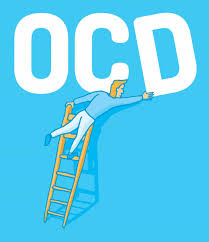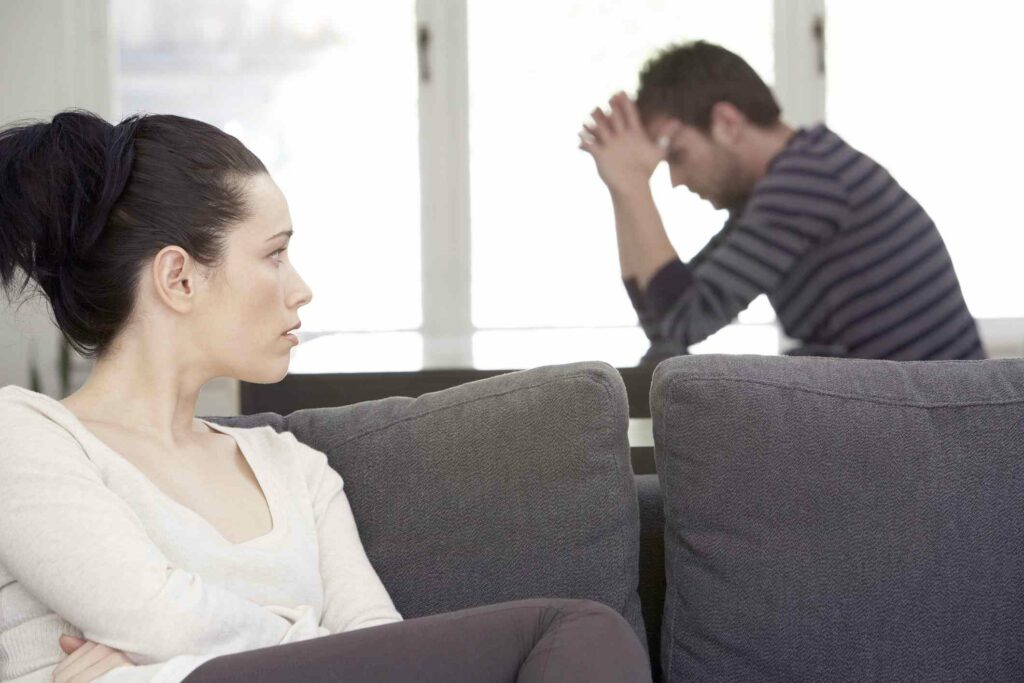Obsessive-Compulsive Disorder (OCD) is a mental health disorder that affects millions of people worldwide. Individuals with OCD experience recurring, intrusive thoughts and behaviors that are difficult to control and can become life-disrupting. It’s no surprise then, that this disorder can manifest in our interpersonal relationships, including abusive ones. In this blog post, we’ll take a look at the relationship between OCD and abusive relationships to better understand how they interact – and how they contribute to each other. We’ll also explore treatment options that could help those dealing with both OCD and an abusive relationship break free of their respective cycles.
Contents
What is OCD?

Obsessive-compulsive disorder (OCD) is an anxiety disorder in which people have unwanted and repeated thoughts, feelings, images, or sensations (obsessions) and engage in behaviors or mental acts in response to these obsessions (compulsions).
People with OCD may be plagued by persistent, unwanted thoughts or images that are hard to control (obsessions). They may feel compelled to perform certain rituals or routines over and over again (compulsions), often according to rigid rules.
For example, someone with OCD might be obsessed with germs or contamination and wash their hands excessively. Or they might be filled with doubt about whether they locked the door or turned off the oven and check it repeatedly. People with OCD can have both obsessions and compulsions, but sometimes they have only one or the other.
What is An Abusive Relationship?
An abuser is someone who regularly uses emotional, physical, or mental abuse to control their partner. An abusive relationship is one in which an abuser attempts to control their partner through fear, intimidation, and threats. Abusive relationships are characterized by a pattern of behavior in which the abuser seeks to gain and maintain power and control over their partner.
Many forms of abuse can occur in an abusive relationship. Emotional abuse can include name-calling, put-downs, Constant criticism, or threatening behavior. Physical abuse can involve hitting, kicking, biting, or any other type of physical violence. Mental abuse can include making threats, controlling what their partner does or doesn’t do, or withholding information.
Abusive relationships often follow a cycle of violence: The honeymoon phase is followed by the tension-building phase and then the explosive phase. After the explosion comes the calm or loving respite phase before the cycle starts all over again. Not all abusive relationships follow this exact pattern, but many do.
If you are in an abusive relationship, it is important to get help. There are many resources available to help you get out of an abusive relationship and get safe. You deserve to be safe and happy in your relationships.
How Can OCD Lead To An Abusive Relationship?
OCD can lead to an abusive relationship in several ways.
- One way is that OCD can make it difficult for a person to trust their partner. This can lead to the person with OCD becoming controlling and jealous, which can then lead to physical abuse.
- Another way that OCD can lead to an abusive relationship is through compulsive lying. People with OCD may lie about their whereabouts or what they are doing to try and control their environment and their relationships. This type of lying can be very damaging to a relationship and can lead to emotional and mental abuse.
- Sometimes, people with OCD may become so fixated on their routines and rituals that they are unable to focus on the needs of their partner. This can lead to the partner feeling neglected, which can then lead to resentment and anger that can lead to abusive behavior.
- Lastly, people with OCD may be overly critical of themselves and their partners, leading to an atmosphere of criticism and criticism-based abuse.
How Can An Abusive Relationship Lead To OCD?
There are many ways that an abusive relationship can lead to OCD.
One way is through the constant fear of the abuser. This fear can cause the victim to develop obsessive thoughts about the abuser and their behavior. The victim may start to worry excessively about what the abuser will do next and how they can avoid being hurt. This can lead to compulsions, such as checking on the whereabouts of the abuser or trying to control their behavior.
Another way that an abusive relationship can lead to OCD is through trauma. If the victim experiences a traumatic event, such as being physically or sexually assaulted, this can trigger OCD symptoms. The victim may start to re-experience the trauma through intrusive thoughts, flashbacks, and nightmares. They may also develop compulsive behaviors in an attempt to avoid further trauma.
There are many other ways that an abusive relationship can lead to OCD, and anyone in such a situation needs to reach out for help. Professional intervention can help the victim manage their symptoms and learn healthy coping skills.
Warning Signs of An Abusive Relationship In OCD
There are numerous warning signs of an abusive relationship in OCD, and it is important to be aware of them. If you are in an OCD relationship or suspect that you may be, here are some key points to look out for:
Your partner regularly puts you down or criticizes you.
One of the main signs of an abusive relationship in OCD is the constant criticism and belittling of the victim. This can range from making negative comments about your looks or intelligence to mocking your thoughts and feelings.
Your partner blames you for their problems and OCD symptoms.
Another clear sign of abuse is when a partner blames the victim for their issues and obsessiveness. This includes things like saying that it’s all your fault they are having difficulty concentrating, or that you are causing them to become more obsessive than usual.
Your partner isolates you from family and friends.
An abuser may try to limit your access to outside support by limiting communication with family and friends or discouraging your attempts to reach out for help. They may even try to control who you talk to or where you go.
Your partner becomes jealous and possessive towards you.
In relationships with abusers, jealousy plays an important role in controlling the victim’s behavior. Abusers will often make unreasonable demands on their partners, including demanding that they stop talking to certain people, checking in constantly throughout the day, or forbidding them from going out without them present.
Your partner threatens you, physically or emotionally.
Abusers can use physical intimidation to control the victim, such as pushing, grabbing, or slapping. They may also threaten to harm themselves if the victim does not comply with their demands. Emotional threats are also common, such as threats to end the relationship if their expectations are not met.
How To Get Help If You’re In An Abusive Relationship?
Getting help is the first step to getting out of an abusive relationship. Reach out to a trusted friend, family member, or professional for help.
Sometimes, it can be difficult to talk about abuse or even to admit that you’re in an abusive relationship. You can also help yourself in the following ways, such as:
Talk to a counselor or therapist who specializes in domestic violence: There are some counselors and therapists who specialize in domestic violence. They can provide support, answer questions, and help you find resources in your community.
Reach out to a hotline: You can call a domestic violence hotline for support and information. Hotlines are staffed by trained professionals who can help you with safety planning, emotional support, and referrals to local services.
Connect with other survivors: Finding someone who has been through something similar is often helpful. You can look for online or in-person support groups for survivors of abuse. A therapist may also be able to refer you to local resources.
Stay connected with supportive friends and family: Having someone to talk to can make a huge difference. Let your loved ones know what you’re going through, and ask for their help.
Keep a journal: Writing down your thoughts and feelings can be therapeutic and help you process what is happening in your life.
Take care of yourself: Practicing self-care is important, especially when you’re in an abusive relationship. Make time for things like exercise, hobbies, or activities that make you feel good.
Conclusion
OCD and abusive relationships can often be intertwined in complex ways, making it difficult to know how to escape safely and remain mentally healthy. While the relationship between OCD and abusive relationships is not fully understood, there are resources available out there that can help those affected find support. It’s important to remember that no one should ever have to live with abuse or fear being abused; seeking professional help may be necessary for those who feel they might need further guidance on managing their mental health while escaping an abusive relationship.
For more information and guidance, please contact MantraCare. OCD is a mental health disorder characterized by obsessions and compulsions. If you have any queries regarding Online OCD Counseling experienced therapists at MantraCare can help: Book a trial OCD therapy session


